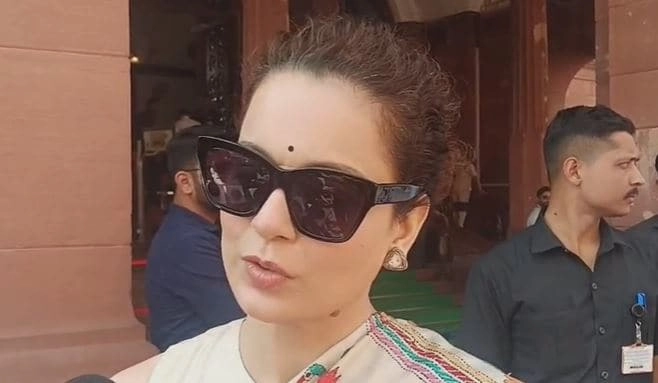Kangana Ranaut, the Bollywood actress known for her outspoken views and controversial statements, recently stirred the pot with her claim of receiving a power bill amounting to a staggering Rs 1 lakh. This assertion quickly attracted attention and sparked debate across social media platforms and news outlets. While Ranaut’s claim appears to highlight issues related to exorbitant utility bills, it has also been met with skepticism. Many critics, including members of the Congress party, have labeled her statement as a “cheap stunt,” suggesting that it is more about gaining media attention than addressing genuine concerns about rising electricity costs.
The Congress party’s reaction to Ranaut’s claim underscores the ongoing political tensions in India, particularly between the ruling party and various opposition factions. By dismissing her assertion as a publicity ploy, Congress aims to undermine the credibility of her statements and, by extension, her influence. This incident exemplifies how political narratives can be shaped by celebrity actions, and how public figures, particularly those like Ranaut who have a history of controversy, can become focal points for larger discussions about societal issues, such as energy costs and governance.
Ranaut’s claim also opens up a broader conversation about the challenges faced by ordinary citizens in dealing with rising costs of living, including skyrocketing utility bills. As the economy grapples with inflation and other financial pressures, many individuals are feeling the pinch in their monthly expenses. The actress’s bold statement reflects not just a personal grievance but resonates with a wider audience that is increasingly frustrated with the financial burden of basic necessities. Whether or not her bill is accurate, the fact that it has sparked such a response indicates a collective concern that deserves attention.
In essence, the controversy surrounding Kangana Ranaut’s alleged Rs 1 lakh power bill not only highlights her contentious role in the entertainment industry but also serves as a reminder of the intersection between celebrity culture and political discourse. As various parties seek to capitalize on this incident, it raises pertinent questions about the effectiveness of political messaging and the importance of addressing the real issues that affect the lives of everyday citizens. Ultimately, this scenario reflects the intricate dynamics of public perception, where personal claims can ignite broader societal discussions and political commentary.




